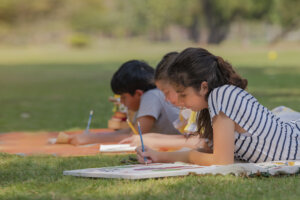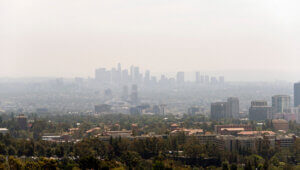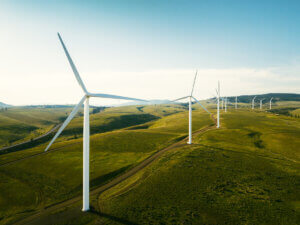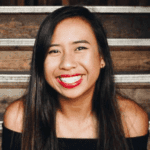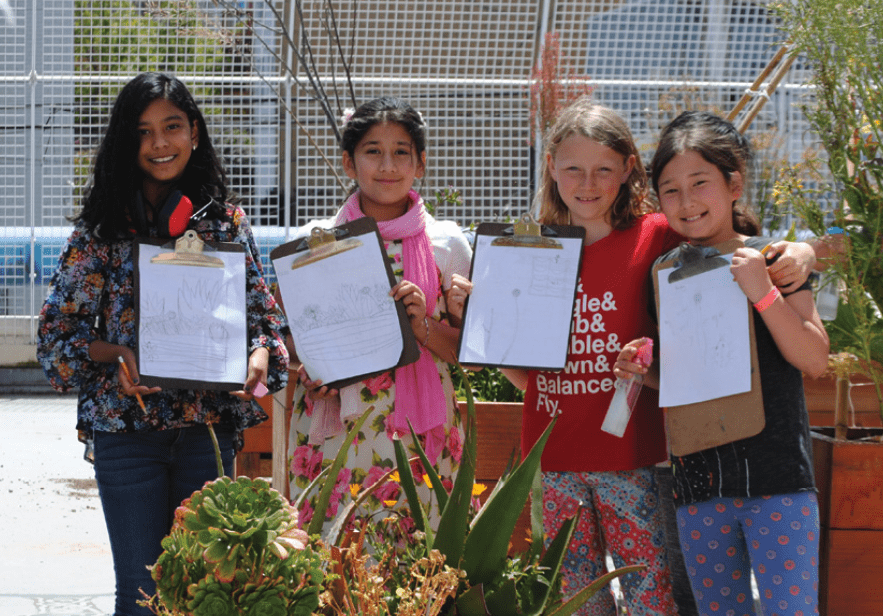This article was republished with permission and originally appeared in California Classroom Science (CCS), an e-newsletter produced by the California Science Teachers Association (CSTA).
When we talk about the education system and how it can be utilized as a tool to promote equity and fight for socio-environmental justice, I’m sure we are all wondering, what can this possibly look like? As someone who has gone through California’s public education system from elementary school all the way to a four-year public university, I have so many ideas of possible solutions. My thoughts don’t just come from what I’ve read, they come from what I’ve experienced as an immigrant woman of color who came from a working-class family.
Reflecting back to when I was younger, I don’t recall having any formal discussions about what was going on in our environment. I believe that this was due to our underfunded and under-resourced public education system. In each grade, I had between two to three different teachers, making my education experience unstable and inconsistent. However, I remember watching commercials and cartoons with the jingle, “reduce, reuse, recycle,” to reduce pollution that was hurting our environment. Yet, I felt that there was never a reason that truly connected with me. Even if I heard of different ways I could make changes for the better, I didn’t understand why it was vital for me to be a part of that movement for social change. Awareness is great, but no matter what age we are, it is much better to be conscious, and that only happens through thoughtful interactions that empower youth.
As I got older, I learned why the practice of “reduce, reuse, and recycle” was important and how pollution affects my family and me. I learned that my community was more susceptible to certain diseases due to our lack of access to clean air and healthy foods. This brings me to my first point, it is crucial to create spaces for young people to identify how certain issues are closer to them than they think. We cannot water down and sugarcoat problems because we believe that we need to protect young people from the harsh truth. By hiding the truth from young people, we are losing the opportunity to make change. We don’t have time to waste. Young people have the most to lose because these issues impact their future and they deserve to know the truth.
In fact, knowledge is so accessible nowadays that even if you don’t tell us, we will find out anyway. We know where our money is going and we will find out what key decision makers are voting on issues that affect us most. Young people are so fed up, that they are registering to vote in historic numbers and there has been an increased number of young people running for office!
My second point is that for education to be effective, it must be relevant to what students are going through in their daily lives. Often, this is related to climate and other environmental issues. If they are able to understand that these local issues are affecting them and the people they care about, then it’s only a matter of time until they will be able to connect it to larger, global issues. This doesn’t just create a better understanding of what is happening in our world, but this makes it easier for young people to find solutions to the issues they’re concerned about. As a benefit, this nuanced understanding that these different struggles are interconnected teaches young people what it means to be in solidarity with other people’s struggles.
In learning spaces, it is important to accommodate people’s understanding of the world. This brings me to my third point, students come from different backgrounds, and I have noticed that “environmental justice work” has been structured for white and affluent communities. We must consider how sustainability can be inclusive to people of color and working-class communities. We need to make sure that the movements we are fostering center around frontline communities who are being impacted most. Centering around frontline communities means honoring the resilience and experiences of those community members (for example, black and brown youth). This does not mean you can tokenize their existence and participation to benefit your own agenda.
Some ways you can prevent tokenization of frontline community members is to avert your assumptions around the idea that all people they share their identities with (whether that’s race, gender, class, etc.) are the same because each is unique. Despite shared identities, there are different intersections of identity that people face, making their experiences unique from one another. Having one person carry this responsibility to represent everyone who holds the same identity is an unfair expectation. Another example of tokenization is when young people aren’t given the opportunity to claim their power in spaces that are meant to empower them. In addition, it is common for organizations and classrooms to tokenize marginalized community members for the sake of fulfilling a “diversity” requirement. Doing so is extremely disrespectful, and folks with privilege must do their own research* to find ways to honor the wisdom and experiences that marginalized community members face systemically.
I have experienced tokenization on different occasions. My first memory was when I was working with a climate education organization called Alliance for Climate Education (ACE). ACE took young people, including myself to the State Capitol to lobby for progressive climate policies. ACE helped us practice how to lobby with government officials and supported us throughout the whole process. My experience when lobbying was difficult because it was my first time talking to government officials and persuading them to support climate policies. What should have been an empowering experience, didn’t feel that way. It didn’t feel empowering because when I would tell them why these climate policies are important to the livelihood of those in my community, and when I asked them to support a bill we were advocating for, they either applauded us or told us that we did a great job. It was obvious that they didn’t take us seriously. Some of them even asked to take a picture with us even if they didn’t seem serious about supporting what we asked for. It was hard to accept that even if the communities we were a part of were being affected by climate change and environmental racism, people in power didn’t seem to get past the fact that even if we are young, our voices matter. The fact that they had the audacity to make that experience a photo opportunity for them, to make it seem like they engaged with youth, was even more disrespectful because they didn’t take our demands seriously.
This example of my experience being tokenized was disempowering and disheartening. However, I learned a lot about my experience lobbying and I hope that you can recognize that it is especially crucial for learning spaces, such as a classroom, to avoid this kind of culture. The first step to avoid this and honor young people’s experiences is to remember that we are all students (no matter your age) and there is so much we can learn from young people if we include them in the conversation.
Lastly, if we really want to honor young people in this movement, please take us seriously. Don’t give us a pat on the back or applaud us when we demand justice. Don’t patronize our experiences and don’t use our resistance as a photo opportunity to make yourselves credible in the same space where you are making decisions that don’t benefit future generations. It is not up to you to decide how and what we learn, the world is changing so fast and we don’t have the option of waiting until we are older to take action. We need y’all to make space, instead of taking space from us, so we can fight and create a world that we can AND want to live in. Accessibility for all is a priority if we want to embody the word, “justice,” because what is the point of having environmental or climate education if all students do not have access and if it’s not done in a way that respects local expertise. Making space can mean creating lesson plans that will give students the opportunity to share the knowledge they already possess with one another. Allowing students to build collective knowledge is essential in establishing their confidence, as well as creating opportunities for students to develop a community with one another. We must restructure these top-down, vertical learning structures where students are only learners and are only capable of retaining information.
An effective solution I have seen is providing collaborative learning spaces that allow students to flourish. This means that educators take on the role of facilitator. Facilitators are still able to reach learning goals, but in this way, the participants have the agency to find their own way of achieving those learning goals. We must have faith that our students have the power to analyze their surroundings critically and that they are able to develop these skills on their own. From my experience, I learned the most when my teachers and mentors/femmetors constantly reminded me that the knowledge I possess has great value. Asking students what they want to learn about and involving them in the creation of lesson plans will show them taking the initiative over their own education is possible. I know that when I was given the space to take control over what and how I wanted to learn, it was easier for me to understand the concepts my teachers carefully planned and allowed me to recognize that I have the agency to empower myself through education.
When we all talk about justice, people will have different approaches and when young people decide to be militant—don’t repress and silence us! We need your support in this intergenerational fight for socio-environmental justice. We need to remember that organizing and fighting for this justice is not glamorous, it is a necessity. The actions we take to defend our Earth, and our livelihoods are acts of survival.
Some good starting places for those willing to dig deeper:
- Cohen, Julie. “How Social Justice and the Environment Connect.” Futurity, 2017.
- Sandler, Ronald L, and Phaedra C. Pezzullo. Environmental Justice and Environmentalism: The Social Justice Challenge to the Environmental Movement. Cambridge, Mass: MIT Press, 2007.
- Southern Poverty Law Center. “Analyzing Environmental Justice.” Teaching Tolerance, 2018.
This article was written by Max Jimenez
Max Jimenez is a 4th-year student at the University of California, Santa Cruz studying Politics and Community Studies. She was raised in Northeast Los Angeles, where she continues to organize for environmental and housing justice.




